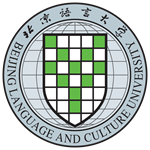Those completing the MA (Mandatory Qualification) will need to complete all the modules below, worth 20 credits each and a dissertation worth 60 credits.
Those completing the MA (Non Mandatory Qualification) will study the same modules but they would not undertake the Effective Teaching of Learners with Sensory Impairment module which includes teaching placement. Instead, you will need take the Inclusion: Universal and Specialist Approaches module from the MA inclusion programme
Unless indicated otherwise the modules listed for this programme are for students starting in 2023.
Assessment of vision and hearing: strategies to support MSI (Deafblind) learners
The processes of sight and hearing will be described to provide a context for accounts of functional sensory assessment and the interpretation of clinical assessment results. The use of assessment information to change practice will be explored in terms of developing optimal environments for learning. There will be an emphasis on the impact of the combination of both vision and hearing loss, and how the role of the MSI practitioner can seek to raise understanding of this and seek to overcome the unique barriers this combination presents. There will also be an exploration of the development of all senses for children with MSI (Deafblindness).
Policy and SEND professional identity
This module has been designed to enable you to relate your experience to the overall developments in provision for children and young people with sensory impairment at both regional and national levels. A key emphasis will be on roles and responsibilities within the context of inclusion and the changing role of the specialist teacher and other professionals.
Deafblindness – A Unique Disability
On this module you will explore the nature and effect of deafblindness and multi-sensory impairment and its place in the Education context nationally and internationally. We will examine the approaches to developmental assessment and the range of needs associated with the disability, together with some of the major causes of multi-sensory impairment. The emphasis will be on supporting you to link your study and learning to your own practice in order to develop a toolbox of skills to support you directly, and to build capacity within your wider community.
Early Communication and Relationships
You will explore the principles which support the development of early communication in this module, which help you build the skills required to help those with MSI overcome the unique barriers to developing communication that vision and hearing loss creates. The emphasis will be on the knowledge required to support children, families, and other professionals in developing skills for learning, skills for building relationships, and skills for making needs known.
Developing communication, confidence and wellbeing for MSI (Deafblind) learners
This module will look at how communication develops, and how it develops differently in learners with deafblindness, assessment and promotion of communication and language development, and responses to challenging behaviour. We will also examine the strategies for promoting interaction and for responding to challenging behaviour.
The emphasis here will be on communication as a pathway into learning and education, so this module will also focus on adapting environments and teaching strategies to support good communication where vision and hearing loss combine to affect access to learning. The module will explore the link between voice, independence and wellbeing, and there will be a focus on identifying and valuing the voice of the child or young person with MSI, and on strategies for supporting children and young people to have meaningful input within educational and decision-making processes.
Effective Teaching of Learners with Sensory Impairment (For the Mandatory qualification only)
This module has a focus on practical skills across all standards and it includes a teaching placement. The aim of this module is to enable you to meet outcomes that can only be acquired, developed, and demonstrated within the classroom. The teaching placement, observed by colleagues working with learners with sensory impairment, will provide a valuable opportunity for you to develop as a reflective practitioner.
The module will include:
15 days teaching practice to practise special skills teaching, with feedback and assessment based on the standars. You will be appointed a teaching placement supervisor;
reflective comments on visits to a range of settings/organisations with relevant foci e.g. clinics, schools, technology companies, therapy sessions;
a ‘portfolio’ in which you will present evidence of a range of relevant skills linked to the standards, including workplace evidence (e.g. specialist assessment, multi-agency working, working with families);
a summative assignment.
You will undertake the teaching practice in a setting other than your own place of work to gain a fuller picture of provision.
Please note: The modules listed on the website for this programme are regularly reviewed to ensure they are up-to-date and informed by the latest research and teaching methods. On rare occasions, we may need to make unexpected changes to compulsory modules; in this event we will contact offer holders as soon as possible to inform or consult them as appropriate.
Show less









